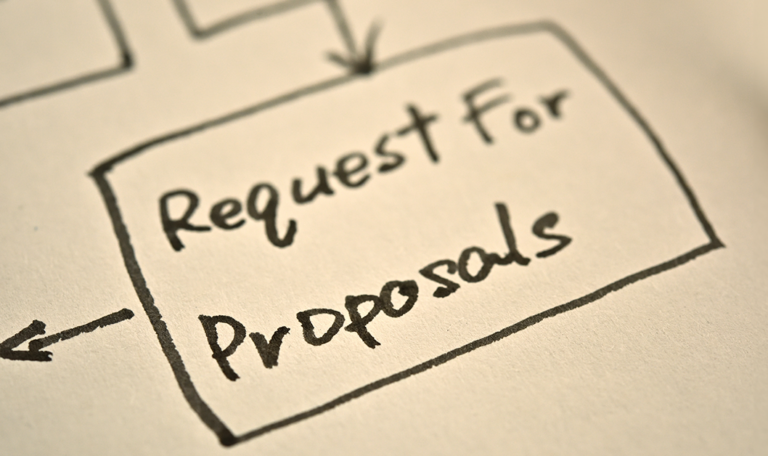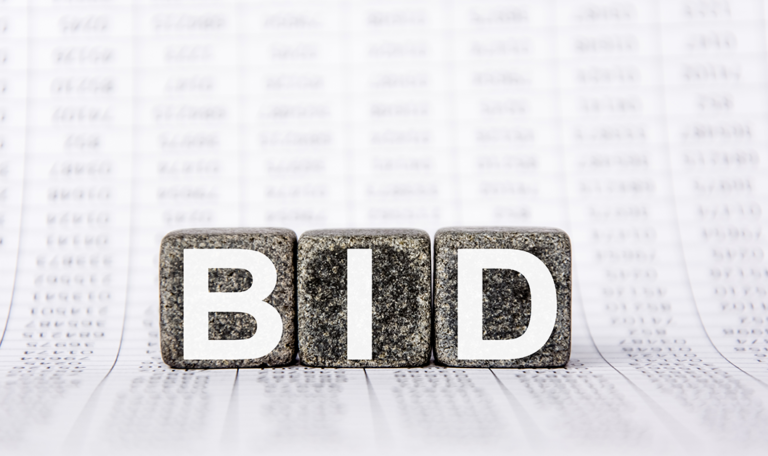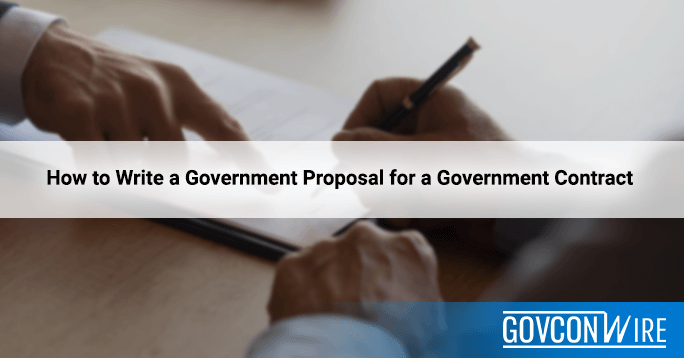Government contracting can give benefits and opportunities to reach an extra mile for any business that wishes to offer its product or services to a new market. You might not be able to access government contracts daily on your business. Still, whenever you come across this business competition, you must be prepared and have a management plan to take advantage of it.
There are several tasks and processes you need to undergo before you can win and bidding government contracts. One of them is proposal writing. But, how can you write and develop a convincing government proposal? What should you know before engaging in government proposal writing?
Read along because the following questions and tips will assist you in writing a winning proposal for a government contract.
Table of Contents
What is a government proposal called?
First and foremost, let us discuss the government proposal. A government proposal, also known as a government contract proposal, is a written response by a private company to a federal government agency looking to buy goods or services.
The Federal Acquisition Regulations (FAR) control all federal agency proposals, and most local government agencies must follow their rules. According to FAR, project proposals must include proposal sections on how the contract proposal should be developed and the evaluation criteria used.
As a result, writing government proposals are often quite lengthy to address all of the entailed requirements. The most straightforward proposal is usually five to ten pages long, whereas a more comprehensive contract proposal can have hundreds of requirements.
How do you write a proposal for a government contract?

1. Understand the Different Solicitation Types
The federal government puts out many forms of procurement and project to the market. Before you write your proposal, I advice you to identify each solicitation type and why the government issues them.
Here are a few examples.
- Request for information (RFI): RFI is a method that government agencies use to review a company in response to a government solicitation and determine what products or services are available to remedy an issue. An RFI allows the contracting officer to investigate the various company available to meet their requirements.
- Request for proposal (RFP) { The framework and specifications for government solicitations are outlined in an RFP. In response to technical validation purposes, interested companies are asked to reply to an RFP and explain how their product or service would fit the government’s needs.
When writing and developing a reply to an RFP, keep in mind that the federal receives responses from many companies, so you’ll need to create a simple proposal writing and set out precisely what you have to offer in terms of expertise.
The process of responding to an RFP is often regarded as a formal request, which means the information you present on your proposal content about your solution or services must be highly complete and exact.
- Request for quote (RFQ): RFQ is a procedure that invites interested vendors to participate in the bidding process and write the government with a price quote for your company’s goods and services. In most cases, your organization will give a price quote that covers the solution needed of government clients and estimates the budget cost of meeting the requirements in an RFQ.
Because agencies routinely change information contained or deadlines with little to no notice, government RFQs are typically seen as informal requests. If this happens, you must submit an updated price quotation, as quotes are designed for quick answers and will likely be supplied within weeks to months after submission.
2. Register your business
You must first register your company with the award management system to be considered and win a government contracting project competition. On the official website of the US government’s System of Award Management (SAM), you can also search databases of contractors interested in government contracts along with their past performance in the industry.
4. Get a NAICS code
Any business needs a NAICS (North American Industry Classification System) number. The US government uses this code to identify small businesses, enterprises and collect economic data. This code will be required for your company to register and apply for federal contracts.
Take note that if your business works in many industries, you may need to acquire and represent multiple NAICS codes. To gain more tips, advice and knowledge about NAICS information, you may consult the Small Business Administration (SBA).
5. Check your EIN
EINs (Employee Identification Numbers) are required for both small and large companies. The Internal Revenue Service (IRS) will provide you with an Employee Identification Number for free.
Examine the bid package carefully before preparing your contract proposal. It is also good to talk with your team to strengthen relationships and support each other for this new journey.
Another is to take note that it may become a legal contract once the procedure starts. As you draft your contract proposal, keep in mind that the final decision made by any government agency will be highly influenced by pricing. During the negotiation process, be ready to answer any inquiries and support your answers with facts and data.
Here are other things to consider before drafting your contract proposal:
- Carefully read and fully understand the government’s request for proposals (RFPs).
- Evaluate the potential return on investment (ROI) before submitting a proposal. Consider if the cost of writing the proposal is acceptable compared to the potential for new business, even if you don’t win.
- Take the time to thoroughly review the proposal request (RFP) and understand what the government agency is seeking.
- Create a checklist to ensure all required items are included in your proposal.
- Familiarize yourself with the competition and develop strategies to outperform them.
- Offer pricing that is fair and competitive for the services you are providing.
- Refine your approach, write a preliminary executive summary, and clearly define your proposal’s unique qualities, themes, and benefits.
5 Steps to Write a Winning Government Contract Proposal

Here are some steps you can follow when writing contract proposal to secure federal contracts:
Highlight details about your company’s background
When putting together your government proposal, remember that it’s all about your business, not you personally. Keep your company’s description brief and emphasize why you’re the ideal choice for the job.
Highlight your team’s expertise, any awards you’ve received, your experience with similar projects, and your reputation in the field. It’s also a good idea to include short biographies of key team members to add a personal touch and highlight their specific skills. Don’t forget to provide contact details for your team members if the recipients want to contact them individually.
Here are some ways to include details about your company’s background in your government contract proposal:
- Keep your company description concise and straightforward.
- Include relevant case studies or testimonials that demonstrate your company’s capabilities.
- Provide a clear and concise overview of your company’s history, mission statement, and certifications.
Include scope of work
When writing a government contract proposal, include a well-defined scope of work. This helps break down your tasks and deliverables into two key categories: explaining the problem(s) you aim to solve and providing sub-sections for goals, challenges, and details about your suggested solution(s).
Briefly describe the problem and present an overview of goals and challenges to demonstrate your expertise and understanding of the project. This approach provides your client with a roadmap of your proposed solution but also helps them grasp the essence of your proposal, increasing the chances of acceptance.
Here’s how to include the scope of work in your government contract proposal:
- Start with an introduction that sets the context for the project and emphasizes its importance in letting the client understand your proposal’s relevance
- Clearly articulate the project’s goals and objectives, outlining how your company will achieve them. This demonstrates your commitment and expertise in addressing the project requirements.
- Provide a detailed description of your company’s specific tasks and deliverables. Include timelines, milestones, and critical information to ensure transparency and align expectations
- Break the project into smaller, manageable tasks using a work breakdown structure to organize, allocate your resources, and track your progress
- Specify the resources your company will need to complete the project successfully. This includes personnel, equipment, materials, or any other relevant resources
Create a compliance checklist
There are certain guidelines to follow when creating a compliance checklist for government contract proposals. These guidelines can be very specific and usually cover aspects like the scope of work, technical capabilities, past performance, and even the formatting details of the proposal (such as font and margin width).
One key aspect that agencies look for is how well you follow instructions. Many fail because they don’t read the solicitation in its entirety.
To ensure compliance, you can create a compliance matrix. This matrix helps you keep track of all the requirements and whether your proposal meets each one. Signing up for alerts is also recommended to stay updated on any changes or clarifications during the question-and-answer period.
Technical requirements can be quite specific, including precise measurements or limitations on past performance. Even if you’re new to the government sector, you can showcase your expertise by demonstrating relevant experience from the commercial sector. Winning bids and delivering quality work are important because past performance is considered in future bidding opportunities.
Additionally, organizations may need to establish DCAA (Defense Contract Audit Agency) compliance. This means having documented procedures and policies in place, ensuring full adherence to them, and meeting the nuanced requirements set by the DCAA.
For example, the accounting system should track different cost types separately, such as indirect costs, direct costs, billing costs, labor costs, and accounting costs. Integrating DCAA compliance with the company’s timekeeping system is also beneficial. The best approach is to have all necessary reports easily accessible in case of an audit.
Include visual aids
Use visuals to convey complex ideas in an easily understandable format. Visual aids such as tables, charts, maps, and infographics can illustrate data and enhance storytelling. These include photos, videos, and animations depending on the project’s scale and budget.
Ensure that graphics serve a purpose and are not merely used as spacefillers. Strategically place and design the visuals to enhance the proposal. It is generally recommended to add at least one graphic per proposal page or at least one every other page. Graphics can complement and enrich text or even replace it entirely to convey the message more effectively.
Discuss warranties and terms and conditions
Warranties and terms and conditions are important parts of a government proposal. Government agencies review them during the selection process. The warranty clause must clearly explain what the contractor guarantees about the item, including its nature, components, and characteristics. It should also cover the contractor’s responsibilities if the warranty is broken, the solutions available to the government, and how long the warranty lasts.
Factors like how long the item is expected to be useful, its nature (including storage requirements), and industry standards are considered when determining the warranty duration. The contracting officer is responsible for ensuring that warranties clearly state what the contractor guarantees about the item, their obligations if the warranty is breached, the solutions for the government, and the scope and length of the warranty.
Where can I find government RFPs?

If you’re a small firm just getting started, dealing with the government can be confusing. Before you begin bidding on contracts, you must conduct research and prepare yourself. We’ll focus on RFP for the sake of this essay because you’ll likely encounter a lot of them.
A request for proposal is once again used to communicate government needs to potential contractors and collect bids. Responding to RFP can be a satisfying and profitable business decision. However, before you can respond to one, you’ll need to know where to look for RFPs that are tailored to your industry.
A public request for proposal
The federal government’s public RFPs are required to follow public procurement guidelines. This means that, in the interests of fairness and transparency, they must be publicly listed.
As a result, public RFPs are virtually always placed on the issuing organization’s website. RFPs are frequently advertised in newspapers and other local publications under the headings “publishing” or “procurement.”
Private request for proposal
On the other hand, private RFPs are issued by private companies and other non-government organizations. They’re frequently more challenging to come by because they’re excluded from government procurement rules. As a result, businesses can use whatever means they want to post RFPs and choose their respondents.
Frequently, you’ll only discover them listed on the company’s website or a social media page. Some agencies choose to work with a small number of contractors. They’ll select and choose who they’d like to collaborate with on the project. This is frequently the result of the contractors that have past performance with the contracting industry.
How do I submit a bid to a government contract?

1. Locate the contract and project opportunity that interests you.
It might take the form of an RFP, RFQ, RFI. Vendors must reply differently to these solicitation methods; make sure you follow the requirements when responding.
2. Check to see if you can deliver the required items or services.
Many suppliers commit the error of writing and bidding on contracts that aren’t a good fit for their services or attempting to take on a contract that is too large for them to handle. You can have the ability to increase your chances to win a contract by only bidding on work that you know you can finish.
3. Read the proposal submission guidelines carefully.
The contracting officer will reject any bid proposal that does not comply with the submission standards. To prevent being rejected, make sure to develop a bid that meets all of the agency’s submission process rules and that you submit your proposal by the deadline.
4. Investigate the results of previous bids.
By carefully examining confidential contract material, you can understand how much other vendors charged for similar services and who your competitors could be for a particular contract.
Make sure everything in your proposal is correct, and be prepared to answer queries. Check that you’ve addressed every requirement in the RFP, RFQ, or RFI before submitting your proposal, bid, or quote. Then double-check that you’ve followed all of the submission process’s rules.
This article gave you enough knowledge on how to write a winning proposal. If you want to know more about how to win contracts and the benefits of government contracting, you may be interested in these articles as well:
- How to Get Government Contracts and Partners in GovCon
- 4 Tips for Pursuing Government Contracts for Small Business
- How to Become a Better Government Contractor: Essential Steps
Do not miss out on your chance to get a daily update of the industry news by subscribing to our page. Sign up now!



